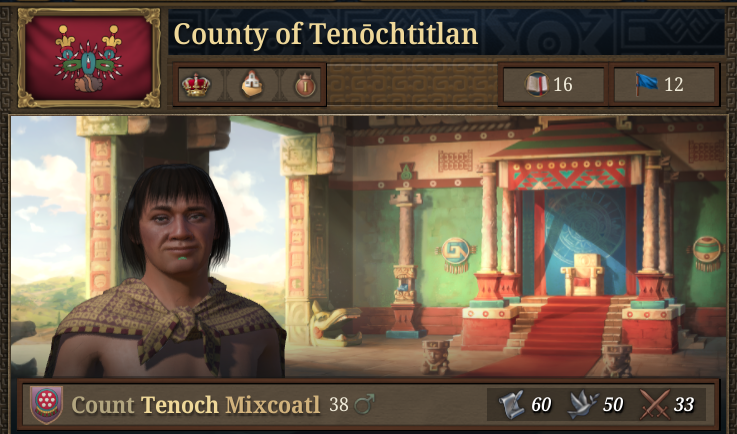Country Ranks
There are four ranks that countries can have in Project Caesar. It is more similar to EU4 than Imperator in that changing country ranks is something you actively do on your own. Besides having various rules on what a country can do, they also give some benefits, and rather importantly to the player experience, they impact what the countries are called.
The code supports multiple types of ranks at the same level, so modders could in theory add dozens of variants of a duchy rank if they so desire.
The default rank is the County Rank, which all countries default to, unless set up to be something else.
The first rank above that is the Duchy Rank, where you can now guarantee other countries, and a little bit higher diplomatic capacity and power projection. Countries that start on this level include the Duchy of Brittany or the Duchy of Lithuania. To be able to upgrade from a county to a duchy, you can not be in any International Organizations that disallow rank changes, but you also need at least 100,000 pops of your primary culture.
The next rank above that is the Kingdom Rank, which requires 1 million pops of your primary culture and gives a larger diplomatic range and other abilities. This includes countries like the Kingdom of Sweden and the Sultanate of Delhi
The final rank, the Empire Rank, which is the hardest to promote to, allows for a wider variety of diplomatic actions, and other abilities. At the start of the game there is only one Empire in Europe though, the Eastern Roman one. A country must become a Great Power before they are able to attain this rank, and there are special restrictions on Catholic countries from pretending to be emperors without the Pope’s permission.
View attachment 1209271


